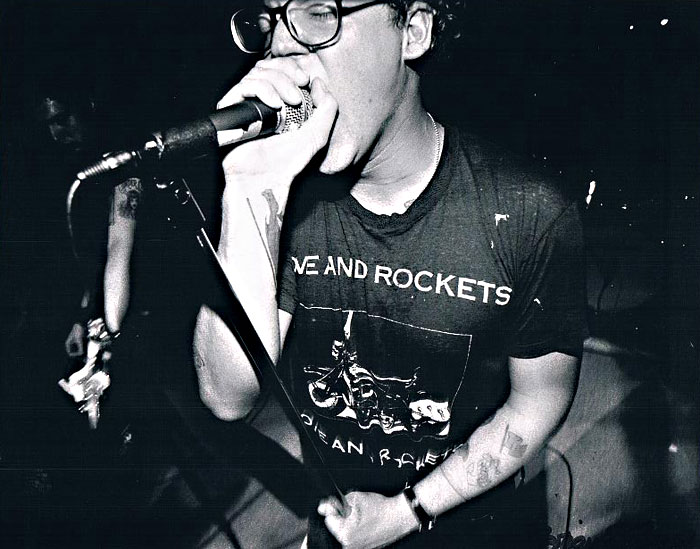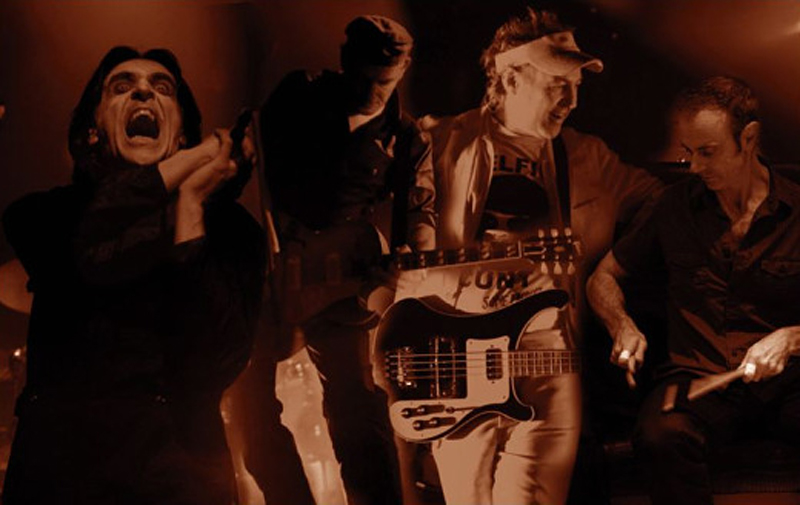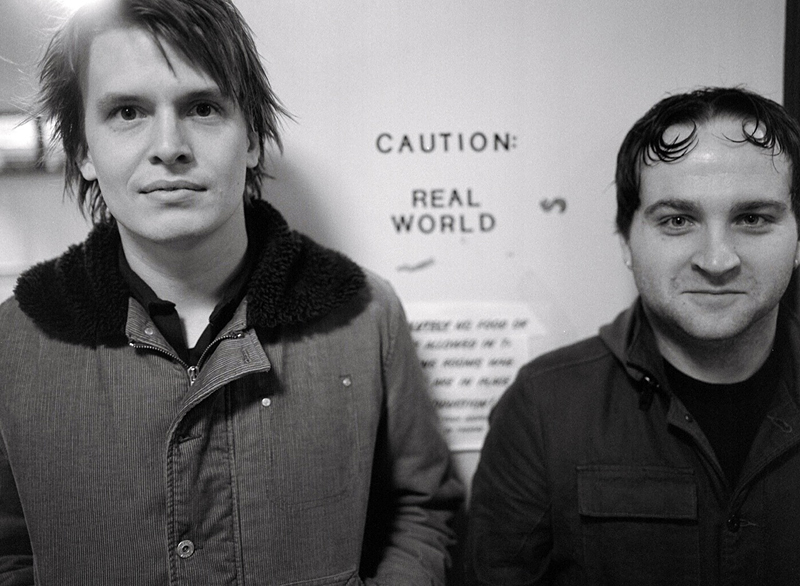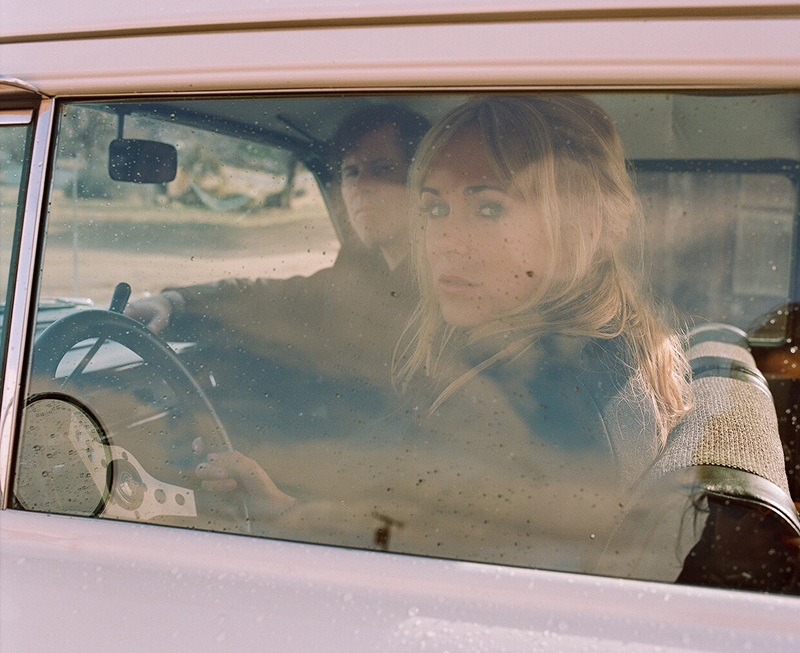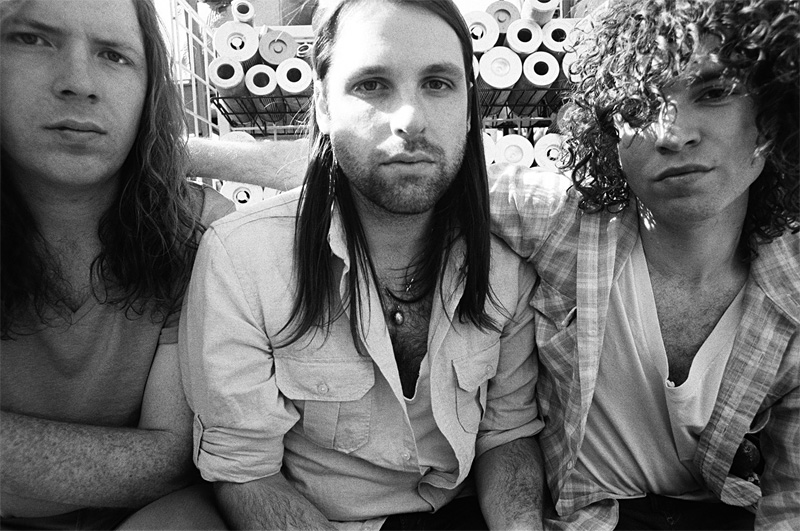From the dark depths of Seattle’s punk-rock basements arose the Murder City Devils in 1996—their rampage fueled by primal, Dead Boys–style fury and a whole lot of liquor. Bespectacled frontman Spencer Moody often appeared the nerd, at least until he stepped up to the microphone and unleashed the deranged howls and nihilistic laments that exorcised all demons in the room. Around him, the band played like bloody knuckles scraping against concrete.
If the Devils had a mission statement, it would’ve been “getting drunk to make music to get drunk to.” On 1998’s aptly titled classic Empty Bottles, Broken Hearts, the roaring “Johnny Thunders” seemed less a cautionary tale than a paean to a patron saint. Live, they were invariably antagonistic, messy, careening, and violent. There was Spencer, getting in someone’s face in the crowd—or getting clocked, glasses flying off his head. There was bassist Derek Fudesco and guitarist Dann Gallucci, throwing down their instruments and diving into the fray.
For five years they fought the good fight (and a few bad ones). They released three loud and lauded full-lengths and an EP. And then, like most bands who drink too much and fight too much (especially among themselves), the Devils imploded in 2001.
“We started out with more of an us-against-them kind of mentality, and that’s where any hostility in our stage presence came from,” Moody says via phone from Capitol Hill’s Anne Bonny, the vintage/antiques shop he’s owned since 2007. “Early on, we cultivated this image of ourselves as kind of being tough guys that all hung out together and wore black clothes and drank all the time and caused trouble. But then there were times toward the end where it was basically open hostility between band members onstage, and that did not make for good performances.”
Adds drummer Coady Willis, who now lives in Los Angeles and hits the skins for both Big Business and the Melvins: “I was super-bummed when it came to an end. But it was pretty hard living. We played a lot of shows and drank a lot of booze and it all caught up with everybody. It came down to the ultimate decision—we can quit this band now and still be friends, or we can keep going with this band and hate each other and hate every waking second of our lives. The choice was obvious.”
Aspects of the Devils’ nasty split haunted Moody, who says that when the internal conflicts erupted, “No one was willing to step up and say ‘No, we’re gonna do this together.’ No one wanted to be that person because it’s hard to do when you’re just thinking, ‘Fuck this. If people are gonna act like jerks, fuck it.’ And in retrospect, if someone had been willing to really put forth a serious effort, we probably could’ve at least gotten another record done, which would have been a good thing to do, but whatever.”
Shockingly enough for both the band and their fans, a chance to heal the rifts occurred in 2006 when the Devils were given the opportunity to reunite for the Capitol Hill Block Party. For the first time in nearly five years, all six members —with guitarist Nate Manny and keyboardist Leslie Hardy rounding out the group—found themselves in the same room.
“I was glad that no one threw any punches,” Moody laughs. Willis concurs: “I was wondering what was gonna happen when we all got together, but everybody was in a really good mood and it felt really good to be OK with everybody and to feel proud of what we did.”
That block-party gig was stellar, with no shortage of fire and ferocity onstage and plenty of crushing mayhem in the crowd. Since then, the Devils have played a handful of shows, and now they’re launching a short West Coast jaunt with a two-night stand at the Showbox. Moody expects the tour to go well. “If we can come up with a set list that everyone can agree on, and if we can treat each other with a marginal level of respect, then it will be good,” he chuckles. “But these are my friends. I know that when it comes down to it, we have each others’ backs.”
This might be one of your last opportunities to catch them onstage together. These days each of the Devils is more committed to jobs, families, or other musical projects—aside from Willis, Fudesco’s in the Cave Singers, and Moody and Gallucci are focused on Triumph of Lethargy Skinned Alive to Death, which recently added ex–Pretty Girls Make Graves singer Andrea Zollo. Though the Devils’ current tour has raised speculation that the sextet is eyeing a more permanent reunion, Willis insists that’s not the case.
“Whatever it is now, it’s fun and it’s a special thing we get to visit every once in a while, but there’s no mistake—it’s over,” he says. “We’re not really a band anymore. It’s understood between all of us that if it ever got to be weird again, that would be it. Everybody would just walk away.”
“After all this time it’s kind of a weird position to be in,” Moody admits. “It’s like an out-of-body experience to look at this thing you created and see people react to it, and sometimes it’s hard to relate to. At the same time, when we were a band I always thought, ‘I don’t know if I would like this or not. I dunno if I would buy this record.’ Now I listen to it and I really like it. I think we were a really good band.”
